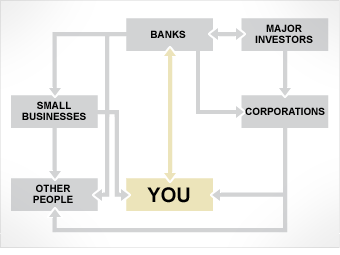
But there are other issues.
Your home. Say you're trying to sell your house, maybe because you're being foreclosed on. Well, those same banks are tightening lending requirements for everyone, including people who might have bid on your house. You want to go to contract, but if they can't get a mortgage and can't afford to pay the entire purchase price up front, you can't sell. Multiply this dilemma by millions of homeowners having trouble selling their houses, and you can see why a credit crunch can hurt U.S. home prices across the board.
Your savings. The current stock market chaos isn't just bad news for hedge-fund managers - it hurts the millions of Americans that actively manage their investment portfolios as well as the millions more who have 401(k)s or IRAs for retirement as well as 529 plans to save for their kids' college tuition.
And as skittish investors have been holding onto their cash or hiding their assets in Treasurys, even more conservative savers are seeing lower returns.
Your job. If you work in the financial industry, you're already well aware of how the credit crunch can put your job at risk. And it's not just a New York or Wall Street problem. A lot of companies that have collapsed or are near collapse are located far from lower Manhattan, putting thousands of jobs on the line and they aren't just the traders, investment bankers and CEOs. Washington Mutual, which became the largest bank to fail in history last week, is based in Seattle and has more than 2200 branches across 15 states. Wachovia, which dumped its banking assets to Citigroup Monday, is based in Charlotte, N.C.
Beyond the financial world, if more businesses start to feel a major cash pinch, they are apt to cut back on hiring and may start to lay off workers. That would add to this year's 600,000 job losses. In turn, that could intensify the economic slowdown by causing sharp pullbacks in consumer spending.
More galleries
